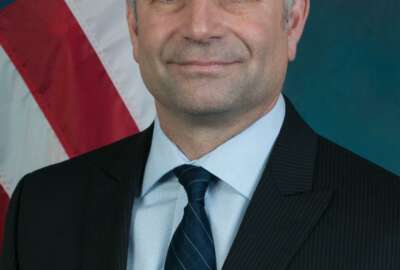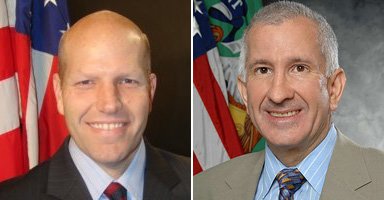
Exclusive
Former GSA administrator retaliated against whistleblower, IG says
The General Services Administration’s inspector general issued a notice saying former Administrator Denise Turner Roth made “statements and taking actions that...
The General Services Administration’s inspector general has found former Administrator Denise Turner Roth retaliated against a whistleblower.
GSA’s IG released a notice saying Roth “retaliated against the complainant by making statements and taking actions that threatened the complainant with transfer to another position.”
The IG also says Roth significantly changed the complainant’s job responsibilities.
Industry sources confirm the whistleblower is outgoing Federal Acquisition Service Commissioner Tom Sharpe.
Top Agency Oversight Stories:
Sources say Sharpe alerted Roth, GSA’s general counsel and other executives about the use of the multi-billion dollar Acquisition Services Fund (ASF) by the Technology Transformation Service (TTS).
The IG says the whistleblower “disclosed concerns of violations of law, gross mismanagement, a gross waste of funds, and abuse of authority.”
Sources say Sharpe’s complaint focused on how TTS was using the ASF money, which is a revolving fund that comes from fees agencies pay to GSA for using the schedule contracts, governmentwide acquisition contracts and from sales of surplus properties.
Sources say some in FAS believe that the fund shouldn’t be used to pay for TTS activities, specifically 18F, as some say it competes directly with the work the Assisted Acquisition Service or other parts of the FAS already provide for other agencies, and it’s not core to the mission of FAS. Sources say some acquisition service executives were concerned that by using the ASF for TTS, the agency was hurting FAS’ ability to meet its mission.
Sources say Sharpe believed Roth retaliated against him by taking away control of the fund, which traditionally has been controlled by the FAS commissioner.
Roth denied any wrongdoing in an email to Federal News Radio.
“While I respect this process, the OIG’s findings are wrong and disappointing,” said Roth, who now is a senior advisor at WSP USA, a global engineering and professional services organization. “As with my entire, unblemished, 23-year career in government, all actions I took were necessary and driven to modernize the federal government.”
Under the law creating the fund, the GSA administrator has ultimate control over the ASF.
A GSA spokeswoman said she has seen what’s posted on the website, but has not seen the report and doesn’t know any details about it.
“What’s posted on the website does not involve current leadership at GSA. We have no further comment at this time,” the spokesperson said.
The GSA IG’s office also said they had no further comment.
The IG says in its notice that it has referred the case to the Office of Special Counsel.
OSC couldn’t comment on the referral. On its website, OSC says the complainant will hear from them in the next 60-to-90 days on average. The complainant can file an “individual right of action” if after 120 days OSC has not notified the complainant that it will seek corrective action or if OSC has not closed the action. At that point, the plaintiff can take their case directly to the Merit Systems Protection Board.
Multiple emails to Sharpe asking for comment were not returned.
Sharpe recently announced his retirement from federal service after the Trump administration decided to make the FAS commissioner position a political one and named Alan Thomas to lead the organization. Sharpe’s last day is June 24.
The use of ASF has been a source of debate over the last several years.
In GSA’s fiscal 2016 financial report, it says the ASF had a “profit” of $8 million on $9.3 billion in revenue. GSA says the ASF has more than $2.1 billion in reserves.
GSA used $70,000 from ASF in 2014 to set up the 18F organization and planned to spend $30 million from the fund through 2016. 18F, which is a fee-based organization, is not expected to pay back the $30 million “loan” to the ASF until 2019, according to a Government Accountability Office report from June 2016.
More recently, sources say FAS also wants to use the fund to help pay for the costs of agencies transitioning to the new telecommunications contract called Enterprise Infrastructure Solutions (EIS) from Networx.
Copyright © 2025 Federal News Network. All rights reserved. This website is not intended for users located within the European Economic Area.
Jason Miller is executive editor of Federal News Network and directs news coverage on the people, policy and programs of the federal government.
Follow @jmillerWFED
Related Stories





